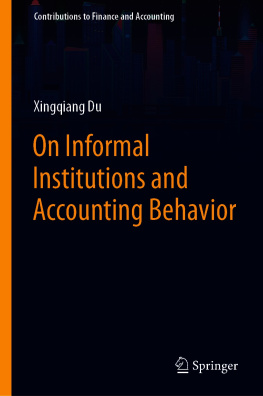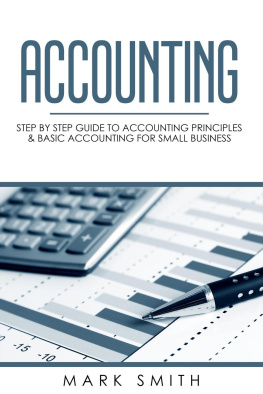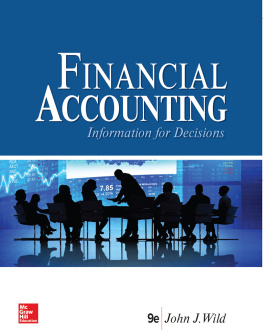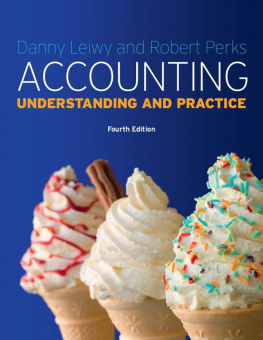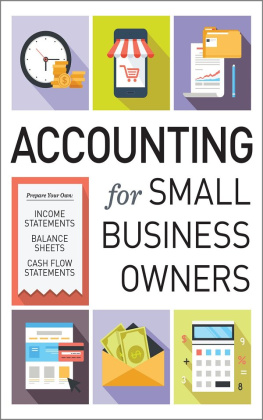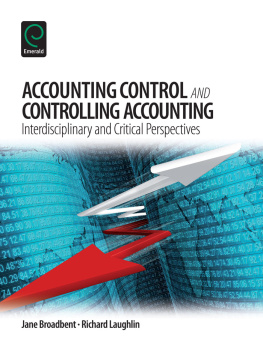Xingqiang Du - On Informal Institutions and Accounting Behavior
Here you can read online Xingqiang Du - On Informal Institutions and Accounting Behavior full text of the book (entire story) in english for free. Download pdf and epub, get meaning, cover and reviews about this ebook. year: 2021, publisher: Springer Singapore, genre: Romance novel. Description of the work, (preface) as well as reviews are available. Best literature library LitArk.com created for fans of good reading and offers a wide selection of genres:
Romance novel
Science fiction
Adventure
Detective
Science
History
Home and family
Prose
Art
Politics
Computer
Non-fiction
Religion
Business
Children
Humor
Choose a favorite category and find really read worthwhile books. Enjoy immersion in the world of imagination, feel the emotions of the characters or learn something new for yourself, make an fascinating discovery.
- Book:On Informal Institutions and Accounting Behavior
- Author:
- Publisher:Springer Singapore
- Genre:
- Year:2021
- Rating:5 / 5
- Favourites:Add to favourites
- Your mark:
- 100
- 1
- 2
- 3
- 4
- 5
On Informal Institutions and Accounting Behavior: summary, description and annotation
We offer to read an annotation, description, summary or preface (depends on what the author of the book "On Informal Institutions and Accounting Behavior" wrote himself). If you haven't found the necessary information about the book — write in the comments, we will try to find it.
On Informal Institutions and Accounting Behavior — read online for free the complete book (whole text) full work
Below is the text of the book, divided by pages. System saving the place of the last page read, allows you to conveniently read the book "On Informal Institutions and Accounting Behavior" online for free, without having to search again every time where you left off. Put a bookmark, and you can go to the page where you finished reading at any time.
Font size:
Interval:
Bookmark:
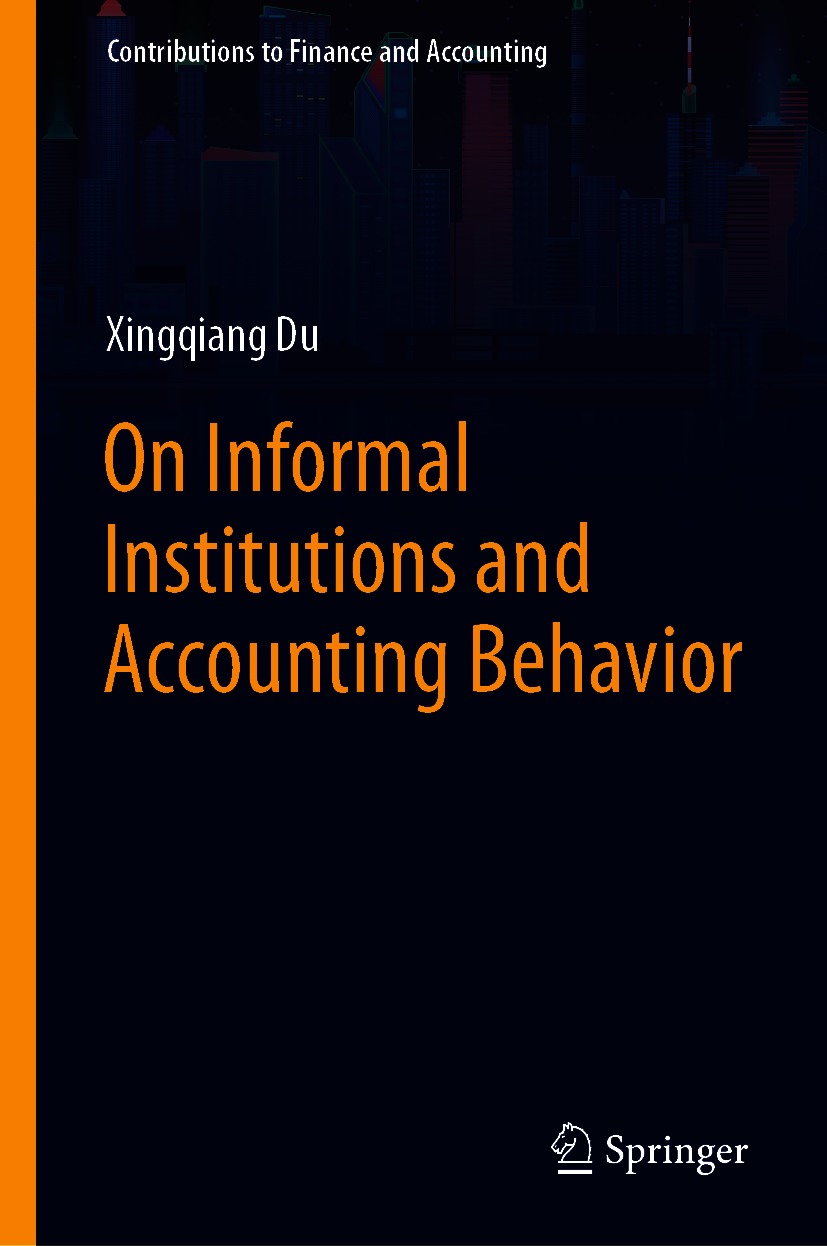
The book series 'Contributions to Finance and Accounting' features the latest research from research areas like financial management, investment, capital markets, financial institutions, FinTech and financial innovation, accounting methods and standards, reporting, and corporate governance, among others. Books published in this series are primarily monographs and edited volumes that present new research results, both theoretical and empirical, on a clearly defined topic. All books are published in print and digital formats and disseminated globally.
More information about this series at http://www.springer.com/series/16616

This Springer imprint is published by the registered company Springer Nature Singapore Pte Ltd.
The registered company address is: 152 Beach Road, #21-01/04 Gateway East, Singapore 189721, Singapore
During the last four decades, some scholars and practitioners have wondered about what factors promote rapid economic growth in mainland China where formal institutions are under construction and investor protection is relatively weaker (e.g., Allen et al. 2005). After unremitting efforts and continuous research, scholars have gradually realized the vital significance of informal institutions in Chinas economic growth and social development. Formal institutions are one thing, but their implementation is another. As a matter of fact, it closely depends on informal institutionswhich shape and dominate stakeholders behaviorsthat formal institutions can be effectively implemented or just on the paper (Allen et al. 2005; Du 2003, 2019a, b).
Specific to the field of accounting, the quality of accounting information in Chinese listed firms varies greatly, although China has promulgated and implemented Chinese Accounting Standards (CASs) that are convergent with International Financial Reporting Standards (IFRSs) substantially. In response, analogically, I, as well as a small but growing group of scholars, have shifted the research interest to focus on informal institutions and their impacts on accounting behaviors.
More specifically, as far as Im concerned, in recent years, my research has focused on whether and how informal institutions such as religion, Confucianism, social norms, and a variety of cultural dimensions affect accounting behaviors in China, the largest emerging market and the second largest economy in the world since 2008. Consequently, my coauthors and I have published more than fifteen papers in Journal of Accounting and Public Policy, International Journal of Accounting, Journal of Business Ethics, China Journal of Accounting Research, China Journal of Accounting Studies, China Accounting and Finance Review, Management and Organization Review, Asia-Pacific Journal of Management, and Journal of Management and Organization, as well as in a variety of top Chinese journals such as Accounting Research, Auditing Research, and Journal of Financial Research. More importantly, in addition to the research papers that have been published in academic journals, some works that I have done in the past decade are selected to form the main contents of this book, entitled On Informal Institutions and Accounting Behavior.
It is well known that informal institution is a multi-dimensional concept, which includes religion, culture, social norms, traditions, and other unexplored dimensions (Williamson 2000). As a result, it is worth noting two aspects as below: First, this book cannot and does not attempt to explore all dimensions of informal institutions. Alternatively, this book only focuses on Confucian culture and its sub-cultural dimensions (e.g., surname sharing, hometown complex, honorific, etc.), religion, political connections (connectedness, ties), catering culture, and trauma experience culture to investigate their effects on accounting behaviors. Second, each dimension of informal institutions may affect a number of aspects of stakeholders behaviors, and thus this book, due to the limitation of the length, cannot and is not intended to examine the effects of a specific dimension of informal institutions on all accounting behaviors. As a supplement to this book, readers can refer to papers published by me and my coauthors in this field (please see Bibliography).
The main theme of On Informal Institutions and Accounting Behavior is to explore the effects of informal institutions on accounting behaviors, and I acknowledge the National Natural Science Foundation of China (NSFC-71790602; NSFC-71572162) for the financial support.
This book is based on a series of works that I (and my coauthors in some cases) have written during the last decade. In this regard, I must express my acknowledgements to several coauthors of some chapters, including Quan Zeng, Shaojuan Lai, and Jingwei Yin. This study would not have been possible without their active support.
Second, I acknowledge my great thanks to the Springer Nature for the generous authorization, which allows me to include a published article in the Journal of Business Ethics (i.e., Whats in a Surname? The Effect of Auditor-CEO Surname Sharing on Financial Misstatement, 2019, 158(3), 849874) as the second chapter of the book. Please note that this paper has been modified before being included in my book, with an estimated proportion of 35%.
Third, I appreciate many valuable suggestions from Quan Zeng, Shaojuan Lai, Yingying Chang, Wei Jian, Ying Zhang, Jingwei Yin, Miaowei Peng, Liang Xiao, Qiao Lin, Yuhui Xie, and participants of my presentations at 2019 Chinas Contemporary Accounting Review Forum, Nanjing University, Chongqing University, Central South University, Hohai University, and Xiamen University.
Font size:
Interval:
Bookmark:
Similar books «On Informal Institutions and Accounting Behavior»
Look at similar books to On Informal Institutions and Accounting Behavior. We have selected literature similar in name and meaning in the hope of providing readers with more options to find new, interesting, not yet read works.
Discussion, reviews of the book On Informal Institutions and Accounting Behavior and just readers' own opinions. Leave your comments, write what you think about the work, its meaning or the main characters. Specify what exactly you liked and what you didn't like, and why you think so.

